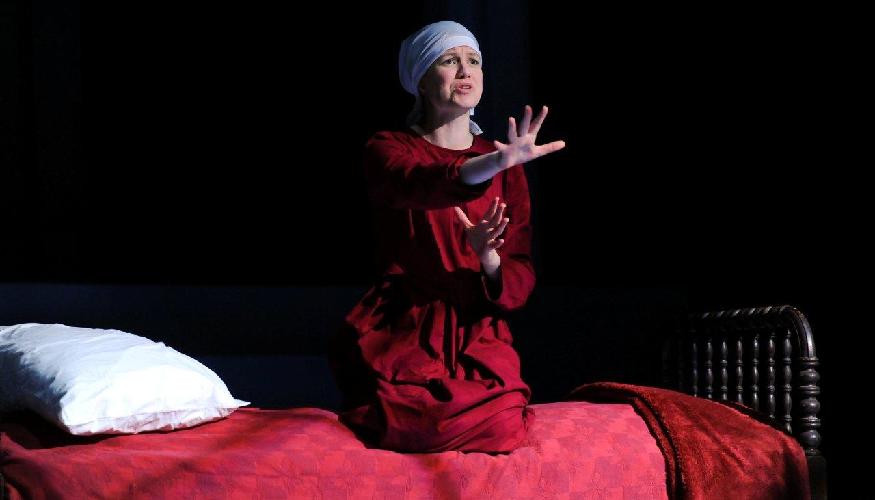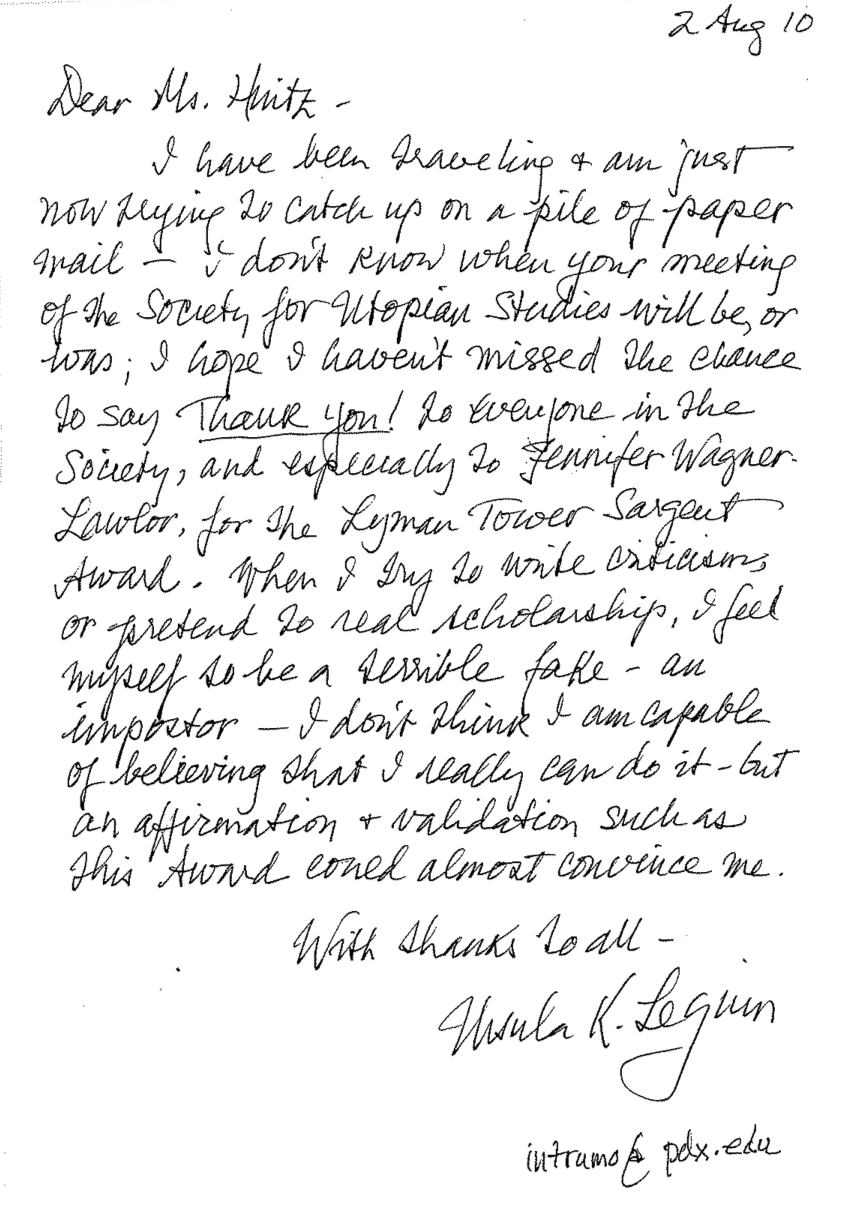Here is the CFP for this October’s Meeting again, this time updated with info about the new Graduate Student Conference Travel Grants. PLEASE, redistribute as widely as possible.
THE SOCIETY FOR UTOPIAN STUDIES – 36th Annual Meeting
Archiving Utopia – Utopia as Archive
The Nittany Lion Inn on the Penn State Campus
State College, Pennsylvania
October 20-23, 2011
The 2011 Society for Utopian Studies Annual Conference celebrates the ongoing evolution of one of the world’s largest—and best–collections of utopian materials in the world. The Arthur O. Lewis Utopia Collection is housed in Eberly Family Special Collections Library at Penn State’s Paterno Library. The Society’s own archive resides here, as do thousands of titles, primarily in British and American utopian literature, published from 1516 up to today. In addition to the usual stimulating schedule of papers, this conference will feature an exhibit highlighting some of the collection’s most valuable treasures. Participants will have the opportunity to acquaint themselves with the many research opportunities here.
The conference will not only highlight the breadth and depth of the Lewis Collection, but also the importance of the archive as broader theme within Utopian Studies. This refers not only to actual physical spaces, but also the significance of the archive in utopian literature, archival practices in utopian movements, and the archive as utopian space itself. We ask for papers, panels, presentations and performances on the cultural, political, social, architectural, and managerial aspects of the archive as utopian space. We also welcome papers on other aspects of the utopian tradition – from the earliest utopian visions to the utopian speculations and yearnings of the 21st century, including art, architecture, urban and rural planning, literary utopias, dystopian writings, utopian political activism, theories of utopian spaces and ontologies, music, new media, or intentional communities.
Finally, in advance of a special issue of Utopian Studies on the theme of “utopia and education,” we also highly encourage papers on any aspect of that topic: utopian pedagogies (in utopian fictions or in actual practice), utopia as an educational process; education as a utopian process; the university as (intentional) community; geographies of utopian education.
* * *
State College, Pennsylvania is home to Penn State University’s main campus, with around 45,000 students. In addition to Penn State’s beautiful University Park campus, surrounded by farms and mountains, the town itself offers restaurants and shops. The University Park airport, serviced by Delta, United and US Air, is only 10 minutes from the conference hotel. State College is located between 3 and 5 hours by car from New York, Baltimore, Philadelphia, and Washington, D.C.
* * *
Please send a 100-250 word abstract by June 1, 2011 to:
Sonja Fritzsche
Modern and Classical Languages and Literatures
Illinois Wesleyan University
201 E University Ave.
Bloomington, IL 61702
USA
Or e-mail submissions to: sf******@*wu.edu (please put “sus submission” in the subject line). As you submit your abstract, please indicate if you have any scheduling restrictions, audiovisual needs (overhead projector; digital projector; PC/Mac laptop, speakers, DVD/VHS player), special needs, or a need for a written letter of acceptance of your proposal. Note: All specific audiovisual requests must be included in the original abstract submission. Late requests cannot be fulfilled due to conference organizational deadlines.
For information about registration, travel or accommodations, please contact the Conference Coordinator, Jennifer Wagner-Lawlor at ja***@*su.edu, or phone 814-867-0367.
* * *
Society for Utopian Studies
Graduate Student Conference Travel Grants
Announcing newly established travel grants designed to aid graduate students with travel costs to the 2011 SUS conference at State College, PA. There are two grants of $500 each. One is for domestic travel and one is for international travel. Please send your paper proposal, budget proposal, and a recent c.v. to the conference program chair Sonja Fritzsche (sf******@*wu.edu) by June 1, 2011. On the budget proposal, please list other resources you have available from your home institution, research grants, or other sources.
Selection criteria include:
1. The quality of the paper proposal/abstract, with attention to its contribution to utopian studies
2. The soundness of the proposed budget.
3. A demonstrated commitment to the society, as evidenced by repeat attendance and participation in the life of the society.


